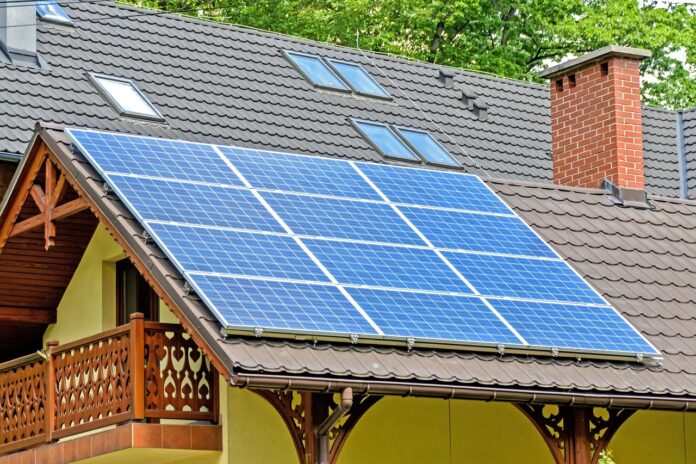Residential architecture is undergoing a transformation, embracing innovation and sustainability to create homes that are not only aesthetically pleasing but also equipped for the future. London and Hampshire, with their rich architectural heritage and dynamic design scenes, are at the forefront of this movement. London & Hampshire architects are blending traditional elements with cutting-edge technology to craft future-ready homes that meet the evolving needs of modern living.
London’s Pioneering Residential Architecture
London, a city renowned for its eclectic architectural styles, is a hotbed of innovation. London residential architects are pushing the boundaries of residential design, incorporating advanced technologies and sustainable practices to create homes that are both beautiful and functional.
Smart Home Integration
One of the hallmarks of innovative residential architecture in London is the seamless integration of smart home technologies. From automated lighting and climate control systems to voice-activated assistants and security features, these technologies enhance convenience, efficiency, and security. Smart homes allow residents to control various aspects of their environment remotely, optimizing energy usage and improving the overall living experience.
Sustainable Design Practices
Sustainability is a key focus in London’s residential architecture. Architects are employing green building practices, such as using recycled and locally sourced materials, installing solar panels, and incorporating rainwater harvesting systems. Energy-efficient design principles, including passive solar heating, high-performance insulation, and triple-glazed windows, are becoming standard. These practices not only reduce the environmental footprint of new homes but also lower energy costs for residents.
Modular and Prefabricated Homes
Modular and prefabricated homes are gaining popularity in London as a means to address the city’s housing shortage and environmental concerns. These homes are constructed off-site in controlled environments, reducing waste and minimizing construction time. Modular homes can be customized to meet specific design requirements and are often more affordable than traditional builds. This approach also allows for greater flexibility in design and quicker adaptation to future technological advancements.
Hampshire’s Approach to Future-Ready Homes
Hampshire, with its picturesque countryside and historical towns, offers a unique canvas for innovative residential architecture. The region’s architects are adept at blending modern design with traditional aesthetics, creating homes that are both forward-thinking and harmonious with their surroundings.
Eco-Friendly Materials and Techniques
In Hampshire, the use of eco-friendly materials and construction techniques is becoming increasingly common. Timber framing, straw bales, and rammed earth are examples of sustainable building materials that provide excellent insulation and reduce the carbon footprint of homes. These materials are often sourced locally, supporting the regional economy and reducing transportation emissions. Architects are also exploring innovative construction methods, such as using hempcrete, a sustainable and breathable building material that offers excellent thermal properties.
Renewable Energy Integration
Incorporating renewable energy sources is a priority for future-ready homes in Hampshire. Solar panels, ground-source heat pumps, and wind turbines are being integrated into residential designs to provide clean, renewable energy. These systems not only reduce reliance on fossil fuels but also enhance energy security for homeowners. Additionally, battery storage solutions are being implemented to store excess energy generated during peak production times, ensuring a consistent energy supply.
Adaptive and Flexible Spaces
Hampshire’s architects are increasingly designing homes with adaptable and flexible spaces to accommodate changing lifestyles and needs. Open-plan layouts, movable walls, and multi-functional rooms allow homeowners to reconfigure their living spaces as required. This adaptability is particularly important as more people work from home or require spaces for various activities, such as fitness, entertainment, and relaxation. Future-ready homes are designed to evolve with their occupants, providing long-term value and usability.
The Intersection of Tradition and Innovation
In both London and Hampshire, the intersection of tradition and innovation is a defining feature of future-ready residential architecture. Architects in these regions are adept at preserving the historical and cultural context of their surroundings while incorporating modern technologies and sustainable practices.
Heritage Preservation
Preserving the historical integrity of buildings is crucial in regions with rich architectural heritages like London and Hampshire. Architects are skilled at restoring and adapting heritage properties to meet contemporary standards. This often involves upgrading structural elements, improving energy efficiency, and integrating modern amenities without compromising the original character of the buildings. Heritage preservation projects not only honor the past but also provide unique and distinctive living spaces that are equipped for the future.
Biophilic Design
Biophilic design, which seeks to connect occupants with nature, is gaining traction in both urban and rural settings. In London, this might involve creating green roofs, vertical gardens, and incorporating natural materials and lighting into high-rise apartments. In Hampshire, biophilic design often means integrating homes with the surrounding landscape, using large windows to frame scenic views, and designing outdoor living spaces that encourage interaction with nature. This approach not only enhances the well-being of residents but also promotes a sustainable and harmonious relationship with the environment.
Looking Ahead: The Future of Residential Architecture
As technology continues to advance and environmental concerns become more pressing, the future of residential architecture will likely see even greater innovation. In London and Hampshire, architects are already exploring new frontiers, such as:
Net-Zero Homes
The concept of net-zero homes, which produce as much energy as they consume, is becoming increasingly viable. Advances in renewable energy technologies, energy storage solutions, and building materials are making it possible to create homes that are entirely self-sufficient. Net-zero homes represent the pinnacle of sustainable living, minimizing environmental impact while providing a high standard of comfort and convenience.
Autonomous Building Systems
Autonomous building systems, powered by artificial intelligence and machine learning, are set to revolutionize residential architecture. These systems can optimize energy usage, manage climate control, and even perform maintenance tasks automatically. By learning from the behavior and preferences of occupants, autonomous systems can create highly personalized and efficient living environments.
Community-Focused Developments
Future residential developments are likely to place a greater emphasis on community and social interaction. Co-housing projects, shared spaces, and mixed-use developments that combine residential, commercial, and recreational facilities are becoming more popular. These community-focused developments foster social connections, support local economies, and promote sustainable living practices.
Conclusion
Innovative residential architecture in London and Hampshire is setting new standards for future-ready homes. By blending tradition with modernity, architects in these regions are creating living spaces that are not only beautiful and functional but also sustainable and adaptable to future needs. As technology continues to evolve and environmental challenges intensify, the focus on innovation and sustainability in residential architecture will only grow stronger, paving the way for homes that are truly equipped for the future.
Help keep news FREE for our readers
Supporting your local community newspaper/online news outlet is crucial now more than ever. If you believe in independent journalism, then consider making a valuable contribution by making a one-time or monthly donation. We operate in rural areas where providing unbiased news can be challenging. Read More About Supporting The West Wales Chronicle


























